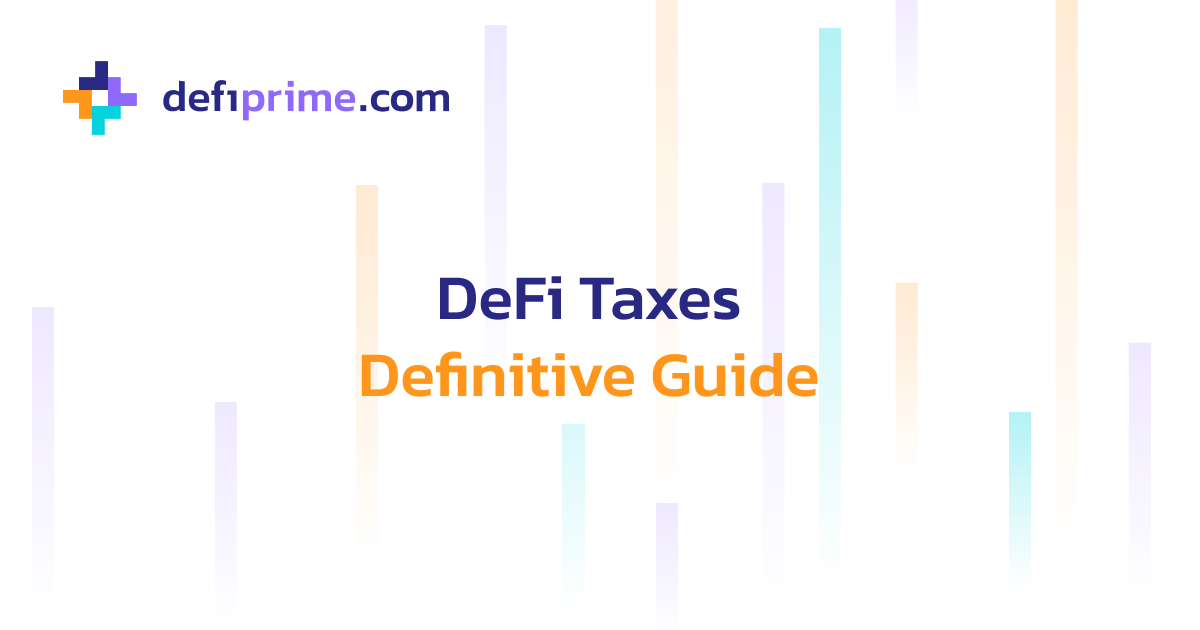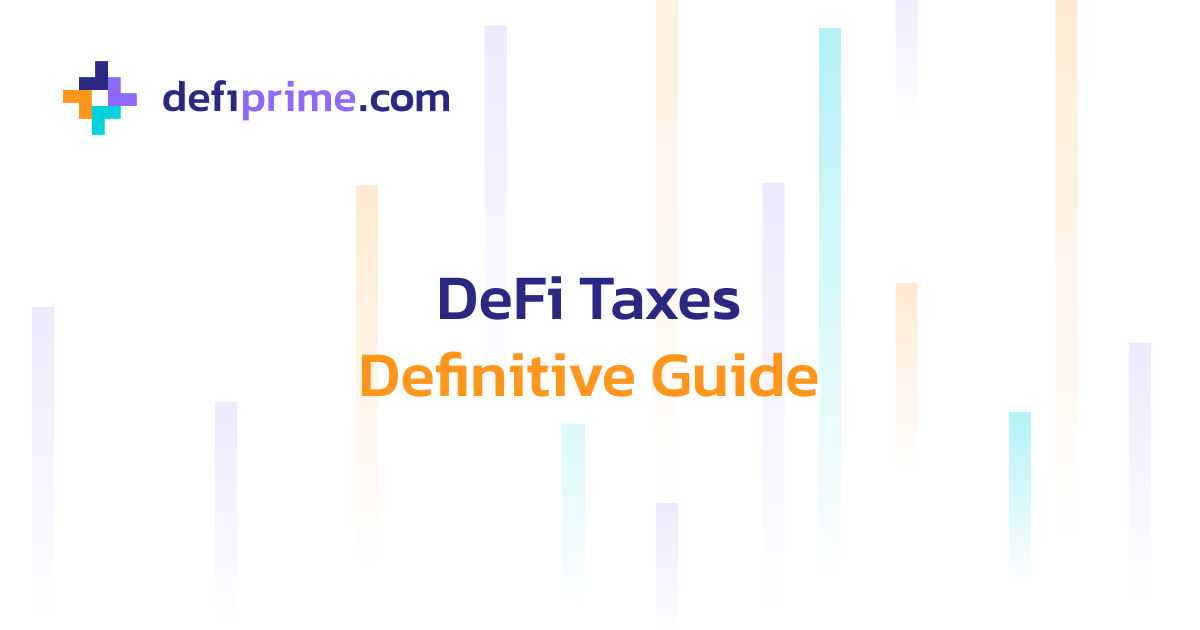Understanding The New IRS DeFi Broker Tax Regulations is crucial for anyone involved in Decentralized Finance (DeFi). This guide breaks down the complexities of how the IRS is now treating DeFi transactions, focusing on the reporting requirements for both brokers and users. We’ll explore different DeFi activities, like staking and lending, and how they’re taxed, helping you navigate this evolving regulatory landscape.
Navigating the new IRS DeFi Broker Tax Regulations can be tricky, especially with all the recent changes. It’s a whole different ballgame compared to traditional finance, and honestly, sometimes feels as chaotic as the political scene – like when you see headlines such as Battin rejects ‘extreme’ slur, accuses Labor of running scared. Understanding these tax implications is key to avoiding hefty penalties; make sure to consult a professional if you need help deciphering the rules.
The rapid growth of DeFi has caught the attention of tax authorities worldwide. The IRS, in particular, is actively working to clarify how DeFi transactions should be reported. This involves defining what constitutes a “DeFi broker” and establishing clear guidelines for reporting various DeFi activities. This guide aims to simplify this complex subject, offering practical advice and examples to help you understand your tax obligations.
Defining DeFi and its Tax Implications
Decentralized Finance (DeFi) presents unique challenges for tax authorities due to its borderless and pseudonymous nature. Understanding how DeFi activities are classified for tax purposes is crucial for both users and the IRS.
Characteristics of DeFi Relevant to Tax Regulations
DeFi operates on blockchain technology, utilizing smart contracts to automate financial processes. This eliminates intermediaries, leading to increased transparency (on the blockchain itself) but also challenges in tracking transactions for tax purposes. The pseudonymous nature of many DeFi platforms, using wallet addresses instead of personal identities, further complicates tax reporting. The volatile nature of many DeFi assets also necessitates careful tracking of their value for accurate capital gains calculations.
Types of DeFi Activities and Their Tax Consequences
Various DeFi activities trigger different tax implications. These include lending and borrowing (generating interest income or expense), staking (generating rewards), yield farming (generating returns from providing liquidity), and trading (generating capital gains or losses). Each activity needs to be carefully categorized for accurate tax reporting.
Examples of DeFi Transactions and Their Tax Classification
Let’s consider a few examples: earning interest on a stablecoin deposited in a DeFi lending protocol is considered interest income; trading tokens on a decentralized exchange (DEX) results in capital gains or losses based on the difference between the purchase and sale prices; staking tokens to secure a blockchain network generates taxable income in the form of staking rewards.
Comparison of Traditional and DeFi Financial Transactions
| Traditional Finance | DeFi Equivalent | Tax Treatment |
|---|---|---|
| Interest from a savings account | Interest from a DeFi lending protocol | Ordinary income |
| Stock trading | Token trading on a DEX | Capital gains/losses |
| Dividends from stocks | Staking rewards | Ordinary income |
| Bond interest | Yield farming rewards | Ordinary income (generally, complexities exist depending on the specific yield farming strategy) |
The IRS’s Approach to DeFi Broker Reporting
The IRS is actively working to clarify its stance on DeFi and tax reporting. The definition of a “broker” in the DeFi context is evolving and has significant implications for platforms and users.
IRS Definition of a “Broker” in DeFi
The IRS considers entities facilitating DeFi transactions, such as centralized exchanges offering DeFi services or protocols that collect user information, as potential brokers. The precise definition is still under development and subject to interpretation.
Information DeFi Brokers Must Report to the IRS
Under the new regulations, DeFi brokers are required to report information similar to traditional brokers, including the user’s identity (where available), transaction details, and the proceeds from DeFi activities. The exact reporting requirements are subject to ongoing refinement.
Reporting Requirements for Different DeFi Transactions
Specific reporting requirements will vary depending on the type of DeFi activity. For example, staking rewards may be reported differently than interest income from lending protocols. Yield farming, due to its complexity, may necessitate more detailed reporting.
Flow Chart Illustrating the Reporting Process for DeFi Brokers

A simplified flow chart would show: User initiates DeFi transaction -> DeFi broker records transaction details -> Broker compiles data annually -> Broker submits Form 1099 to IRS and user -> User reports income/losses on tax return.
Tax Implications for DeFi Users
Understanding the tax implications of DeFi activities is crucial for users to ensure compliance. Accurate record-keeping is paramount given the complexity of many DeFi transactions.
Applicable Tax Forms and Schedules
DeFi transactions are typically reported using Form 1040, Schedule 1 (Additional Income and Adjustments to Income), Schedule B (Interest and Ordinary Dividends), and Schedule D (Capital Gains and Losses). Specific forms and schedules will depend on the type of DeFi activity.
Calculating Capital Gains and Losses for DeFi Investments
Capital gains and losses are calculated based on the difference between the cost basis (the original purchase price) and the proceeds from the sale of a DeFi asset. Accurately determining the cost basis can be challenging due to the complexities of DeFi transactions and the lack of centralized record-keeping.
Tax Implications of Staking Rewards, Lending Interest, and Yield Farming Profits
Staking rewards, lending interest, and yield farming profits are generally considered taxable income and reported as ordinary income. The specific tax treatment might vary depending on the jurisdiction and the nature of the reward.
Common DeFi Tax Mistakes and How to Avoid Them
- Failing to track all DeFi transactions.
- Incorrectly calculating cost basis.
- Not reporting all taxable income from DeFi activities.
- Misclassifying income or expenses.
Careful record-keeping, using tax software designed for cryptocurrencies, and seeking professional tax advice can help avoid these mistakes.
Navigating the Complexities of DeFi Tax Reporting
Accurate tax reporting for DeFi activities requires meticulous record-keeping and a thorough understanding of tax laws. Several strategies can simplify this process.
Figuring out the new IRS DeFi Broker tax regulations can be a headache, especially with all the new rules. Need a break from the complexities of crypto taxes? Check out the ticket details for the upcoming Liverpool v Lille Champions League match at Liverpool v Lille: Champions League ticket details to plan your exciting trip. Then, get back to tackling those tax forms – you’ll feel refreshed and ready to conquer those DeFi regulations!
Accurately Recording and Tracking DeFi Transactions
Use a spreadsheet or specialized cryptocurrency tax software to track all DeFi transactions, including dates, amounts, and relevant wallet addresses. Maintain detailed records of all transactions for at least seven years.
Calculating the Cost Basis of DeFi Assets
Determining the cost basis can be challenging with DeFi assets. The “first-in, first-out” (FIFO) method is commonly used, but other methods might be more appropriate depending on the specific circumstances. Consult with a tax professional for guidance.
Comparing Tax Implications of Different DeFi Platforms and Protocols
Tax implications can vary across different DeFi platforms and protocols. Factors such as location, legal structure, and specific transaction types can influence the tax treatment. Thorough research is crucial.
Preparing a Comprehensive Tax Return Reflecting DeFi Activity
Ensure all DeFi income and expenses are accurately reported on the appropriate tax forms and schedules. Seek professional tax advice if needed to ensure compliance.
Future Trends and Challenges in DeFi Tax Regulation: Understanding The New IRS DeFi Broker Tax Regulations

The decentralized nature of DeFi presents significant challenges for tax enforcement. The evolving landscape requires adaptable tax policies and proactive measures from both regulators and users.
Navigating the new IRS DeFi Broker tax regulations can be tricky, especially with all the recent changes. It’s a whole different ball game compared to traditional finance, so stay informed! Take a moment to remember Olivia Hussey, the iconic Romeo and Juliet actress, who sadly passed away as reported here: Olivia Hussey: Romeo and Juliet actress dies aged 79.
Getting back to taxes, remember to keep meticulous records of your DeFi transactions to avoid future headaches.
Challenges in Enforcing DeFi Tax Regulations
The pseudonymous nature of many DeFi transactions, the global reach of DeFi platforms, and the constant evolution of DeFi protocols make enforcement challenging. International cooperation is crucial for effective regulation.
Evolving Landscape of DeFi and the Need for Adaptable Tax Policies

DeFi is rapidly evolving, with new protocols and applications emerging constantly. Tax policies must adapt to keep pace with these innovations to maintain clarity and fairness.
Predictions for Future Changes in IRS Regulations Concerning DeFi
We can expect increased clarity on the definition of “broker” in the DeFi context, more specific guidance on the tax treatment of various DeFi activities, and potentially, stricter enforcement measures. The IRS may collaborate more with other international tax authorities to address cross-border issues.
Recommendations for DeFi Users and Developers to Ensure Compliance
- Maintain meticulous records of all DeFi transactions.
- Seek professional tax advice.
- Stay informed about evolving tax regulations.
- Develop platforms that facilitate tax reporting.
Illustrative Examples of DeFi Tax Scenarios
Let’s examine specific DeFi scenarios and their corresponding tax implications to illustrate the complexities involved.
Scenario: Staking Rewards

Alice stakes 1 ETH worth $2,000 on a DeFi platform and earns 10% annual staking rewards. At the end of the year, she receives 0.1 ETH worth $200. This $200 is considered ordinary income and must be reported on her tax return.
Scenario: DeFi Lending Platform
Bob lends 100 DAI (a stablecoin pegged to the US dollar) to a DeFi lending platform and earns 5% annual interest. At the end of the year, he receives 5 DAI. This 5 DAI is considered ordinary income.
Scenario: Yield Farming
Charlie participates in yield farming, providing liquidity to a decentralized exchange. He earns 20% annual returns in the form of various tokens. The value of these tokens at the time of receipt is considered ordinary income, and any subsequent sale of those tokens will generate capital gains or losses.
Table Illustrating Different DeFi Scenarios and Their Corresponding Tax Outcomes, Understanding The New IRS DeFi Broker Tax Regulations
| Scenario | DeFi Activity | Tax Treatment |
|---|---|---|
| Alice | Staking | Ordinary Income |
| Bob | Lending | Ordinary Income |
| Charlie | Yield Farming | Ordinary Income (rewards) and Capital Gains/Losses (token sales) |
Final Wrap-Up
Navigating the tax implications of DeFi can be challenging, but understanding the new IRS regulations is key to compliance. By carefully tracking your transactions, understanding the different tax implications of various DeFi activities, and seeking professional advice when needed, you can ensure you’re meeting your tax obligations. Staying informed about future developments in DeFi tax regulation is also crucial, as the landscape continues to evolve.
Remember, proactive planning and accurate record-keeping are your best allies in this space.
User Queries
What if I used a DeFi platform based outside the US?
US tax laws generally apply to US citizens and residents regardless of where their income is generated. You’ll still need to report your DeFi income on your US tax return.
Do I need a special tax software for DeFi transactions?
While standard tax software might not explicitly handle DeFi transactions, you can use it to record your income and expenses. Some specialized crypto tax software may offer more DeFi-specific features, but thorough record-keeping is key regardless of the software you use.
What happens if I make a mistake on my DeFi tax return?
The IRS offers various options for correcting tax return errors, including amended returns. It’s best to address any mistakes promptly to avoid penalties. Consulting a tax professional is advisable if you encounter significant errors.
Where can I find more detailed information on these regulations?
The IRS website is a good starting point, though navigating their publications can be challenging. Consulting a tax advisor specializing in cryptocurrency and DeFi is highly recommended for personalized guidance.
